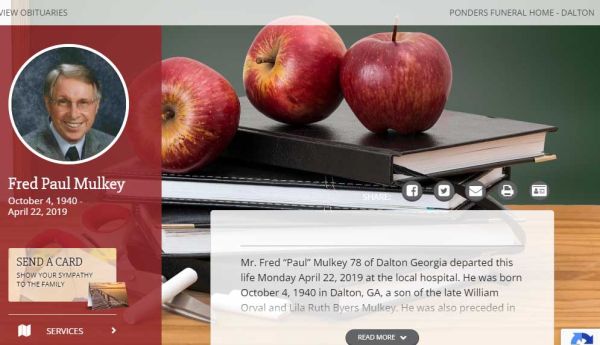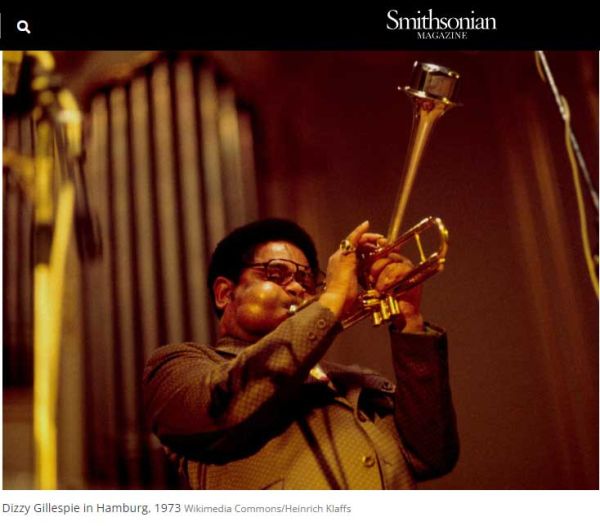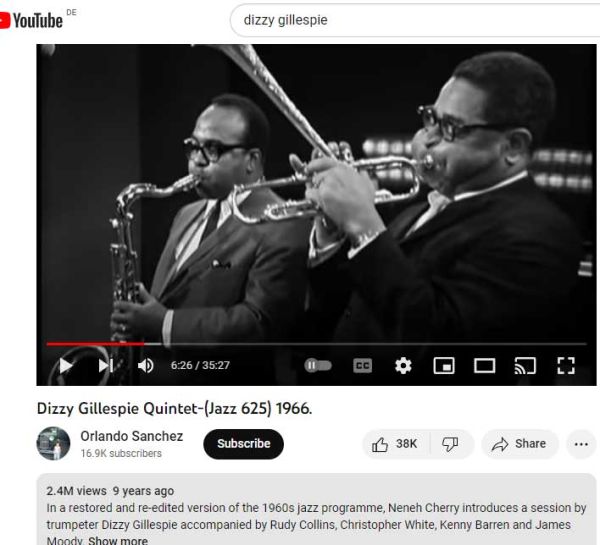Dizzy Gillespie
I attended Trinity School in Columbus, Georgia, from kindergarten until graduation from the eighth grade. Like many private schools, it ran an uneven but inventive academic program. I really decided to become a writer there, because my seventh grade English teacher Paul Mulkey read stories to us by O. Henry, J. D. Salinger, and Ambrose Bierce. The stories made me think.
During the summer of 1964, Trinity offered its students a week-long trip to the New York World's Fair. Trinity's headmaster supervised the trip by rail from Columbus to New York, and we spent most of our days exploring the World's Fair exhibits. At night, we boarded a bus and drove around New York for hours, touring. For a 12-year-old, the sleep-deprivation really did a number on me.
One night, we drove through New York's theatre and nightclub districts. One nightclub featured the legendary singer Dusty Springfield, another the trumpeter Dizzy Gillespie. Gillespie had two traits that stood out. He used a trumpet with a bent horn tilted upward, and he had cheeks that puffed out like a bullfrog's.
So I looked him up recently on YouTube and found a performance from 1966, featuring him and his quintet, with James Moody on flute and saxophone. Gillespie's performance has a melodic discontinuity, as if composed in real-time, an "endless instant" of disparate sounds. For this performance, he used a muffler for his trumpet, called a "mute," a metal cup inserted into the horn, to damp down its volume and change its resonance. The combination of the bent horn and the muffler, at any rate, create a sound unlike any other trumpeter.
The harmony, such as it is, functions with ambivalence, as if the players don't fully agree on its intentions. For a few bars, the instruments mesh; then the trumpet belts out a high-pitched, dissonant shriek that wrecks it. Only the frenetic ballsiness and inventiveness of the music keeps it moving forward; then it recapitulates at the end. I don't mean to put Gillespie's performance down. I've listened to it a dozen times already, sort of thrilled by it. The title of the piece, "And Then She Said Stop," will resonate with most guys.



